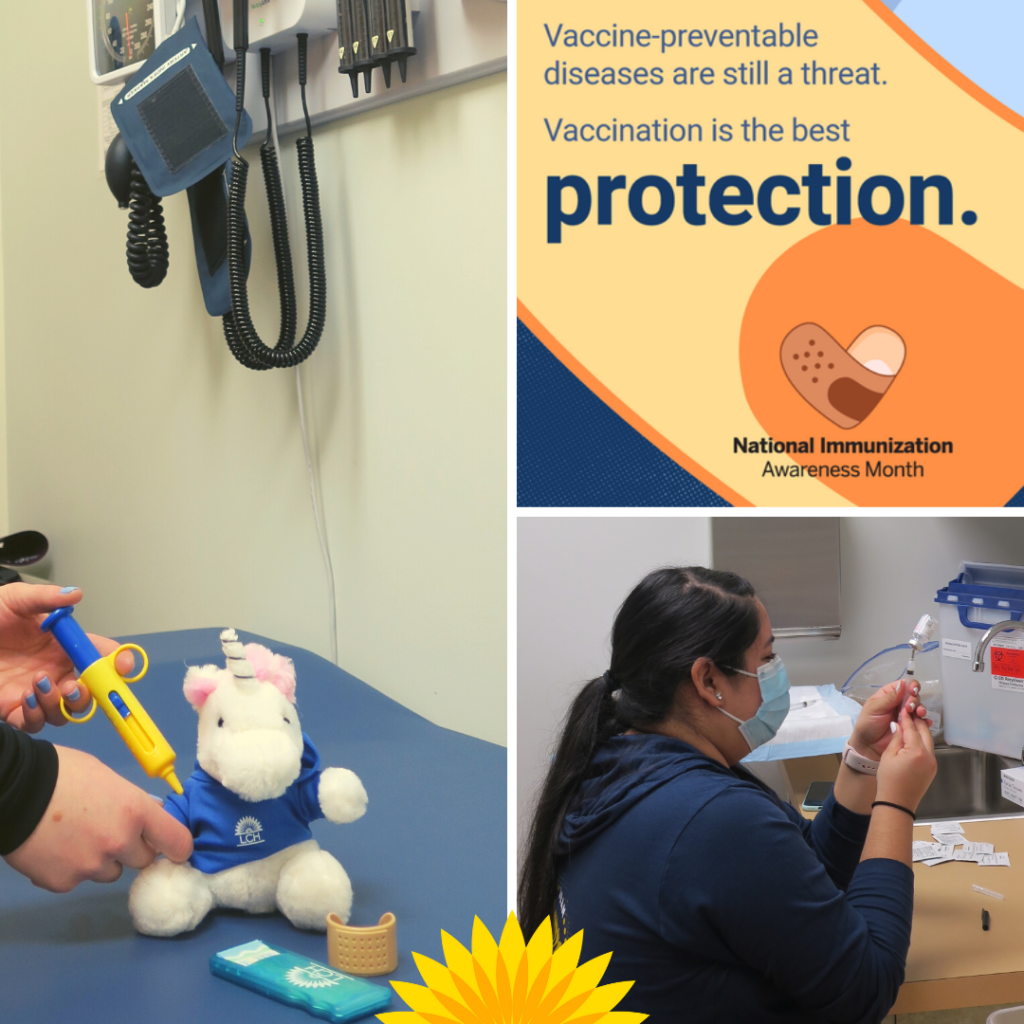August 26
Should I Get a Flu Shot?
August is National Immunization Month. As we raise awareness about the important of vaccines this month, it is a good time to start talking about flu shots. The flu season is about to begin, and you may not have received your flu shot yet. With all the focus on COVID-19, it may have slipped your mind. If you’ve been wondering whether you should get a flu shot this year, the short answer is “Yes!”
While there are some people who should avoid getting a flu shot (more on that below), for most people, getting the flu shot will reduce your chances of getting the influenza virus. According to the CDC, everyone over the age of six months should get immunized for influenza.
What is the Flu, and Why Should I Worry?
The flu is a contagious respiratory illness caused by two main influenza viruses – influenza A and B. It is spread through respiratory droplets that occur when people sneeze, cough, talk, or sing. Although less common, it can also be spread by touching infected hard surfaces and then touching your eyes, nose, or mouth.
Infected people are most contagious in the first three to four days of infection. The severity of the flu ranges from mild to life threatening. It can cause fever, chills, body aches and pains, headaches, and respiratory symptoms.
Flu Cases in Chester County, PA
Thankfully, flu activity was low for Pennsylvania this past flu season. But this fall will have new challenges with more activity taking place in the community, and with kids going back to school. Now is the time to make a plan to get your flu shot. Talk with your provider today. Don’t have one? Consider LCH as your primary care provider. With clinics in West Grove, Oxford, and Kennett Square, we offer affordable and accessible services to our community.
 Here are several reasons you should get the flu shot followed by some important reasons some people should not get vaccinated.
Here are several reasons you should get the flu shot followed by some important reasons some people should not get vaccinated.
- Getting the flu shot will make it less likely to become infected, be hospitalized, or die from influenza.
- The flu vaccine will reduce the length and severity of the flu if you do contract the virus. It also reduces the need to see a doctor if you get infected.
- While the flu shot doesn’t protect you from COVID-19, getting vaccinated helps to minimize the number of flu patients entering the hospital at a time when they are already overburdened by coronavirus cases.
- Getting vaccinated helps protect the people around you who may be more vulnerable to the effects of the flu.
- For many people avoiding the flu is critical. It’s important to get vaccinated if you are at risk for flu complications, including pregnant women, older age adults, and young children.
- Chronic conditions can make you even higher risk to have flu complications. Having a condition such as: asthma, cancer or cancer treatment, chronic obstructive pulmonary disease (COPD), cystic fibrosis, diabetes, HIV/AIDS, kidney or liver disease, or obesity make it even more important for you to get vaccinated.
There are some people who should avoid getting the flu shot including:
- Children under six months of age.
- People with extreme allergy to vaccinations or ingredients in them (this could include antibiotics, gelatin, or other ingredients).
Talk to your doctor before getting vaccinated if you have any of the following:
- A serious egg allergy.
- An allergy to ingredients in the vaccine.
- If you’ve ever had Guillain-Barré Syndrome.
- If you are not feeling well.
Additional Resources:
www.health.pa.gov/topics/disease/Flu
www.cdc.gov/flu
www.mayoclinic.org/diseases-conditions/flu/in-depth/flu-shots
